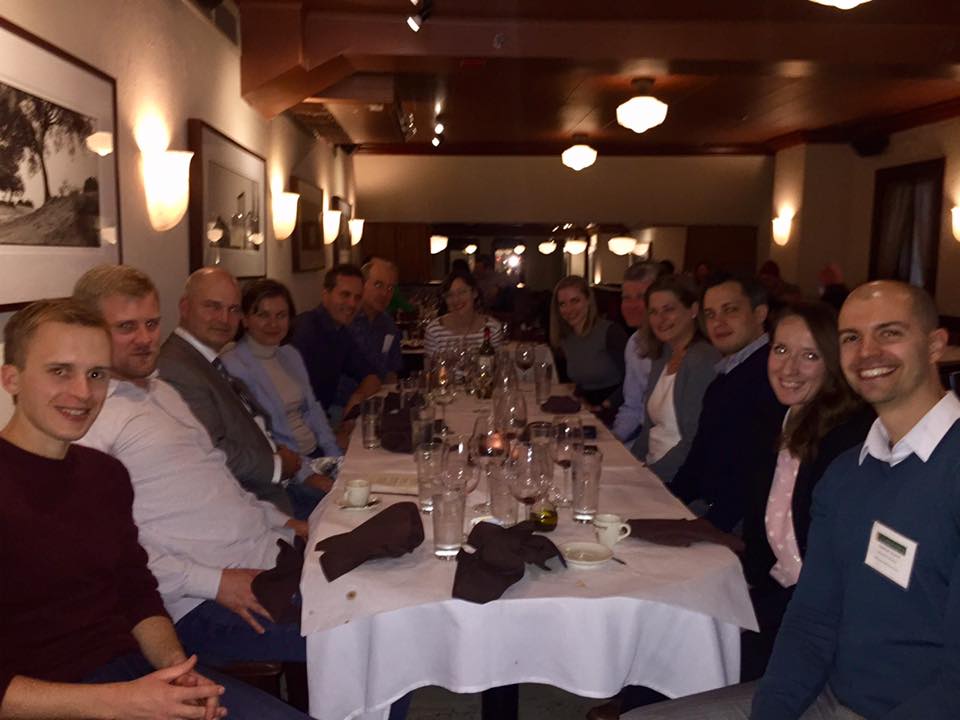|
Georgetown had a particularly big presence at this year's American Society for Environmental History conference. Here are some reflections from three of our environmental historians:
Dagomar Degroot, assistant professor of environmental history: I first visited Chicago as a PhD student, while driving to the 2012 ASEH conference in nearby Madison, Wisconsin. Five years later, I returned as a Georgetown University assistant professor for this year’s ASEH conference. How quickly life can change! Scholarship, too. This year, I was fortunate to be part of two panels that advanced the frontier of environmental history in ways that, arguably, would have been hard to imagine in 2012. The first panel combined the insights of anthropologists, archaeologists, and historians all struggling to understand the environmental history of the North Atlantic, particularly its Arctic marine ecosystems. Papers drew on everything from oral traditions to protein sequencing to trace the coevolution of natural and human histories. The discussion that followed touched on topics that ranged from the steady disappearance of coastal “natural archives” in the far north to best practices in multidisciplinary collaboration. The second panel was all about the environmental history of outer space, an area of scholarship that has only recently gained momentum and acceptance in our field. Our papers explored the environmental history of Mars, the consequences of falling orbital debris, and the anthropology of exoplanets. Questions prompted us to think deeply about historical analogies between Earth and other worlds; the place of the Anthropocene in our research; and changing paradigms in science. It was telling that nobody questioned whether environments beyond Earth actually belong in environmental history. Something new, it seems, is orbiting the Sun. Robynne Mellor, PhD candidate in environmental history: This year’s ASEH was an exciting opportunity for me to engage with scholars interested in the same themes, ideas, and topics as I am. I especially enjoyed all the ways in which the panel participants discussed the history of resource extraction and its effects on the environment and surrounding populations. The panelists addressed the impacts on the environment associated with mines from Ontario and Minnesota to Murmansk, and there is growing interest in creating a network of environmental historians of resource extraction, something about which I am particularly excited. I was also able to participate in conversations about Canadian, U.S., and Soviet environmental history, all areas in which I am interested, and broaden my horizons as part of lively discussions on “new materialism” and what it means for environmental history, from the understanding of carcinogens to dinosaur fossils. Finally, hearing Bill Cronon’s retrospective on Nature’s Metropolis while eating Chicago mix popcorn in Chicago was a great way to end the weekend. Jackson Perry, PhD candidate in environmental history: Attending ASEH this year encouraged me to think a lot about questions, answers, and stories, as I move from comprehensive exams to dissertation research this spring. Looking back at coursework and exams, the imperative to reach a conclusion about a debate in historiography or to advance a particular interpretation of history based on original research was strong. The time between question and answer was sometimes as short as a few seconds. The most engaging panels at ASEH meanwhile emphasized questions more than answers. They inspired curiosity and open-ended discussion of, say, the relationship between colonial and post-colonial development policy, or of linear and cyclical aspects of Mediterranean environmental history. What sticks in my mind from the weekend’s papers were the stories they offered, of a sick cattle herd downwind of a nuclear testing range in New Mexico, or of the dreams of white South Africans about diverting rivers into the Kalahari Desert for agricultural expansion in the early twentieth century. Beyond particular topical insights, the major refrains of my experience at ASEH 2017 were the value of unanswered questions and hypotheses in our research and our collaborative work, and the power of storytelling as a medium of scholarly communication.
1 Comment
|
EH@G BlogArticles written by students and faculty in environmental history at Georgetown University. Archives
May 2020
Categories |


 RSS Feed
RSS Feed